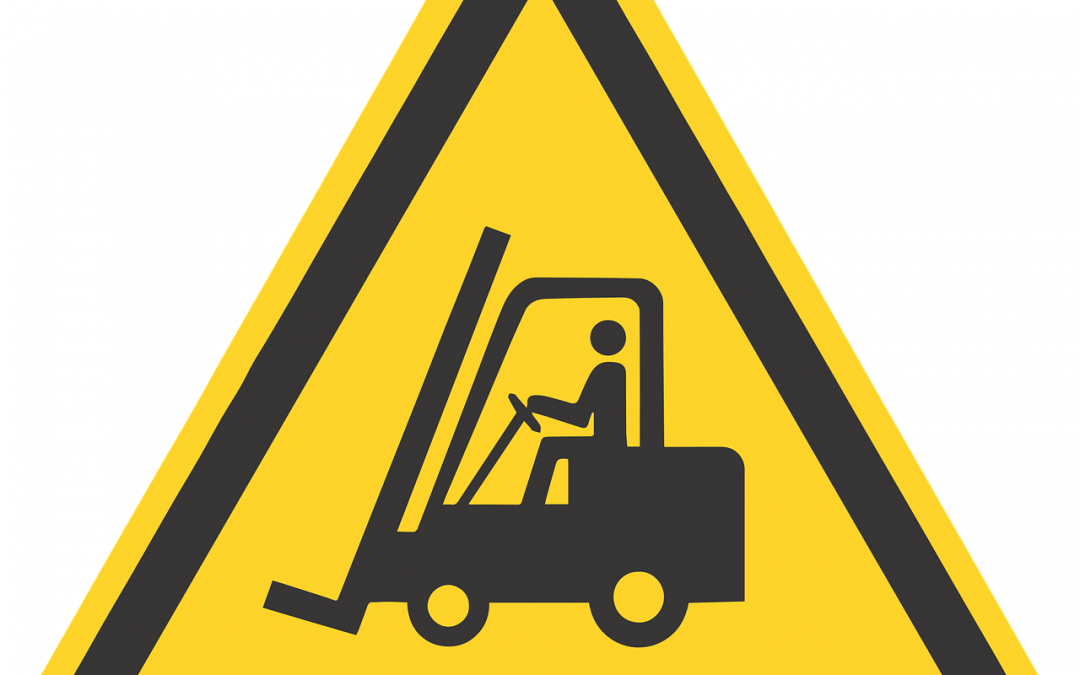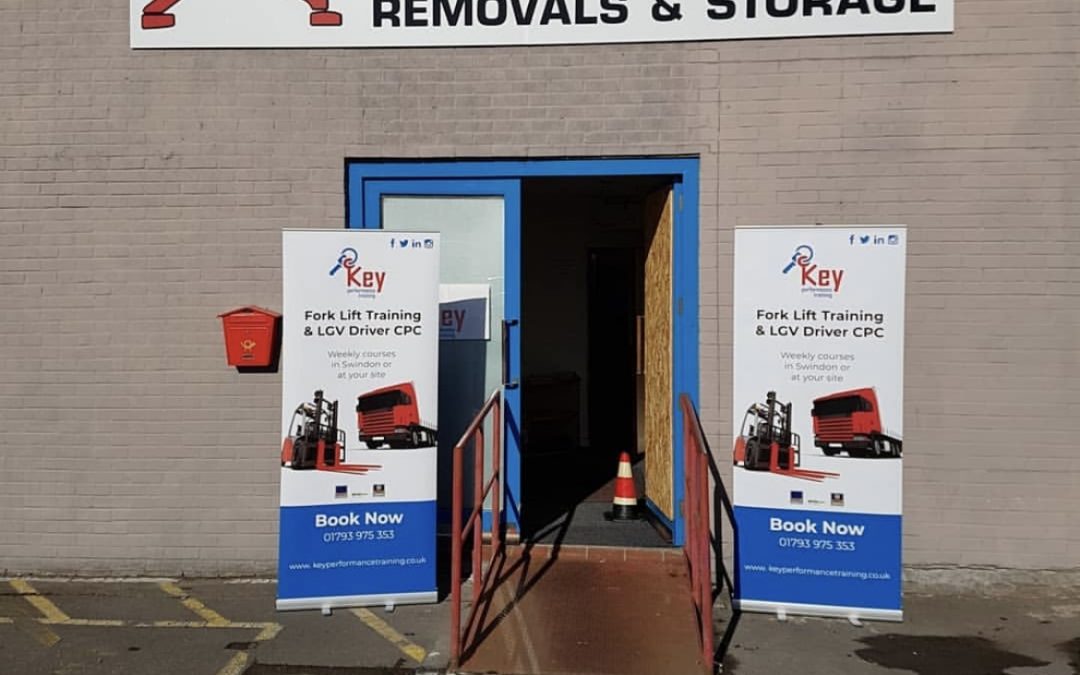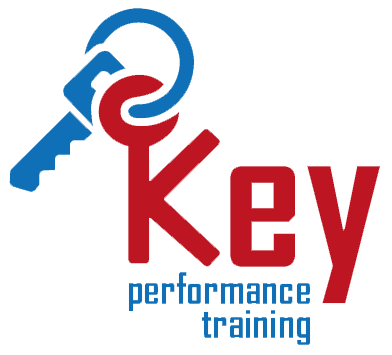
by Richard Colligan | Aug 27, 2021 | Employment & skills, Industry news, RTITB, Training courses
According to the UK health and safety executive almost one in five lift truck accidents occur as a result of mechanical failure, which could be avoided through correct pre-inspection completion. Inspecting a forklift before operating will only take a short amount of time but could save you from severe injuries and accidents. With all heavy equipment or vehicles, a complete inspection is the best way to make sure equipment is ready for use and all systems are working efficiently. Warehouse managers and employers should always get damaged or broken equipment immediate repair to ensure the safety of workers.
At Key Performance Training, we ensure all of the delegates who complete a course with us know and understand the importance of inspecting the lift truck before operating and that going forward into employment they carry out all safety procedures to the RTITB standard.
Below are 5 of the most important pre-checks to conduct before operating, however the list doesn’t stop there!
1. Tyre inspection/check over
Tyres provide grip for movement, friction for braking and suspension for safety and comfort. Before operating any forklift you must check that the tyres are in perfect condition as the wrong tyres or excessively worn ones can be a dangerous and expensive risk.
When inspecting the tyres there are two crucial aspects to ask yourself:
- Is there any visible damage to the tyres such as cracks, tears or bulges?
- Do they have a sufficient thread depth? (You can check this with a simple gauge whilst referring to manufacturer’s handbook for specific thread depth required for the truck you are operating.)
2. Checking the breaks before moving the forklift.
Insufficient or worn-out breaks are the cause of many serious forklift accidents. As an operator, you need to be sure that if a hazard gets in your way not only are you ready to break but the breaks are also ready to break!
To carry out an inspection\test of the brake you first need to press the footbrake checking for downward pressure whilst ensuring the handbrake is applied. Then, repeat with the handbrake released to compare the level of pressure in the brake pedal. If the pedal goes to the floor, this could mean there is an issue with the brakes that could cause a risk for you as the operator.
3. Checking how the truck moves.
Before attempting to carry any load, the operator should be sure that the truck is moving as it should. To carry out this check the operator will need to engage the reverse gear (whilst carrying out safety checks by looking over both shoulders), release the parking brake and slowly move off; checking that the lift truck moves off with ease and as normal.
The operator can also use this as another opportunity to check the brakes by accelerating and then pressing the foot brake to ensure that the lift truck comes to a complete stop.
4. Checking for leaks after having removed the lift truck.
After moving off, operators should check that there is no signs of leakage where the truck was previously parked. If you do find any leakage it could be engine oil, water , electrolyte or hydraulic oil. In an incident where you find any evidence of leaks it’s best to immediately dismount the vehicle and stop operating.
We would also advise you to report any leaks to the management so they can solve the issue so no other operators are at risk.
5. Clutch and gearshift check.
Like a car, many issues can arise from a worn-out forklift clutch or gearbox; doing a quick check of both will maximise your safety.
Any signs of jumps or jerks when changing gear should not be ignored and instead means you should stop operating and report instantly. A safe to operate truck will shift gear smoothly and with ease.

by Richard Colligan | Aug 13, 2021 | Forklift Friday, Our News
With restrictions now easing we are happy to announce that we can officially run our ‘Forklift Fridays’ on the first Friday of every month starting from the 10th September. Forklift Fridays are a chance to come into the warehouse and get a feel for the courses we offer within a 2 hour, FREE taster session.
Although these sessions are optional and we can still book you in for a course if you do not attend, there are a multitude of benefits that you can gain from coming along, so we highly recommend!
In this blog I will be highlighting what is included on the day and how these elements can put you at an advantage before starting a course.
1. Meeting our team.
One of the most crucial aspects as to whether you will succeed on a course is whether you feel comfortable enough around the team- especially our trainer, David. We hope that once you meet David you will feel at ease immediately and all those initial nerves will fly out the window!
Many delegates come in for a course very nervous and apprehensive and within a couple of hours of speaking with David already begin to feel comfortable. Coming along for a taster session will therefore mean you are ‘ready and raring’ to go when course week comes around!
2. Learn more about the courses and forklift trucks
On the day, you will listen and take part in several activities such as presentations, video clips, demonstrations and some light hearted competitions\quizzes; all to open your eyes to the world of forklift trucks!
From these activities you will gain a better understanding of the need for adequate forklift training, the types of forklifts and the difference between them, what is included in the courses and also learn some interesting facts and stories from David’s 10 year+ experience with FLT.
Once again, you will then be more prepared and insightful on the week of your course.
3. Ask questions to our highly experienced trainers.
We understand that you want to be 100% sure about a course before booking, so we will always give you a chance to ask any questions that you may have regarding any aspect of the courses or trucks. Our trainers are highly experienced and knowledgeable so no questions are out of bounds.
4. Have a go on one or both trucks
After a couple of demonstrations, we will also allow you to have a quick go on the trucks and get a feel for the kind of practical learning you will be doing throughout your course. This may be the ultimate decider as to whether you do a Counterbalance, Reach course, or both.
This will also reduce the initial worries about how to operate controls, turn around etc on the week of your course which will also put you at a further advantage.
5. Meet new people
The previous ‘Forklift Fridays’ have all been a positive experience, even for those who don’t end up going on to do a course. We like to make the day as fun and interesting as possible. Ultimately, it’s a chance to meet new people who have similar interests, drink tea\coffee and eat biscuits. The best bit? The session is completely FREE. I mean, why wouldn’t you want to attend?
If you are interested in attending a ‘Forklift Friday’ or have any questions surrounding the day then please contact us;
Email- mia.davies@keyperformancetraining.co.uk
Phone- 07788259738

by Richard Colligan | Aug 8, 2021 | Employment & skills, Our News, RTITB, Training courses
At Key Performance Training, our aim is to provide delegates with a pathway to employment and help them find a job, a better job or a career.
In Swindon and the surrounding areas there are many job opportunities and a demand for Forklift Truck operators meaning that employment is easy to find after completing training. We see ourselves as the stepping stone between a delegate and their future in employment.
Below are the 4 steps towards the pathway of employment.
Step 1- Free Taster Session: Our free taster sessions or ‘Forklift Fridays’ are an opportunity for potential delegates to come along to the warehouse and find out more about the courses we offer. The session is up to two hours and includes demonstrations, information sheets, having a go on one or both trucks and also being given a chance to ask questions to our highly experienced trainers.
We want to be sure that all delegates are committed to a course before booking so we will always give feedback to either the delegate, the company or job coaches as to whether they are likely to succeed.
Step 2- Training: The duration of training can be anywhere from 1-5 days depending on the type of course, your level of experience and the delegates:trainer ratio. In all FLT courses there are elements of both theoretical and practical training that need to be completed before test day. At the end of the training you will be given both a theory and practical test that will be completed in a non- pressurised environment. Don?t worry though, as our trainers will make sure you are 100% ready before putting you in for the test and have the skills to put you at ease beforehand.
Step 3- You have your license: Successful learners will be presented with an RTITB approved certificate and photo ID card and will also be registered onto the RTITB National Operators Register Scheme database of approved forklift truck operators (NORS) for 3 years. We will then put you in contact with local employment agencies that can help you find work and also keep you updated on any new job vacancies that come up in the local area.
Step 4: Finding work- There you have it, you have now unlocked your pathway into employment! Often delegates find work 1-2 weeks after completing a course with us and although it is not certain you will find work straight away we always make sure you are the first people to know about any new job vacancies.

by Richard Colligan | Jul 29, 2021 | Employment & skills, Industry news, RTITB, Training courses
Did you know that there are on average 35,000 serious injuries and 85 deaths each year as a result of poor safety whilst operating a Forklift Truck? This frightening statistic shows just how dangerous these 4,000kg machines are, especially when those operating do not have adequate training.
However, the majority of these accidents are preventable when both operators and supervisors become aware of the potential hazards and know what they can do to reduce the risks. This is where we come in! Below, are the top 4 major FLT hazards and what you can to do avoid them.
1. Forklift overturning
Overturning is the leading cause of serious fatalities and deaths when operating a forklift. In fact, overturning is responsible for 25% of accidents.
Turning or stopping too quickly, an unbalanced load, loads that are too heavy or high along with uneven and wet surfaces are all possible causes of a forklift overturning.
The best way to prevent these accidents is adequate training that includes; which surfaces trucks are designed for, at what point the truck becomes ‘overloaded’, speed limits, securing a load and more. However, if an accident does occur where the forklift overturns the operator should NEVER try to jump out of the vehicle and instead brace themselves against the back of the seat and hold on firmly.
2. Obstacles
Obstacles obstructing the operators view is a hazard that may seem obvious but way too many accidents happen as a result of an untidy warehouse. Some possible obstacles in a warehouse include; pallets, stocks, pipes, poles and barriers.
To significantly reduce the chances of an accident, operators and supervisors need to ensure they are checking for any obstacles that could impede the forklift before and whilst operating. Either by moving these potential obstructions or simply being aware of them, the chances that they will cause an accident, massively decreases.
3. Attachments
Attachments can be a hazard for several reasons as a change in maintenance, capacity and adjusting to different types of attachments can all cause potential hazards. The main hazard occurs when attachments are subject to poor maintenance. Stretched chains, worn out forks and other run-down areas all increase your risk of injuries.
To reduce the risks, the operator and supervisors should have a full understanding of the capacity limits and safety protocols on each individual attachment used. Also, before starting a job, the truck should be thoroughly checked to ensure everything is safe and not worn out.
4. Blind spots
A blind spot is when the operator cannot see past something that is blocking their view. Some common situations when this is likely to occur are; when weather conditions are poor, the lighting of the warehouse is insufficient or the forklift has a full load.
To reduce the risks, employees should direct pedestrians or other employees away from potential blind spots or, if possible, block off the whole area. If this cannot be done, drivers should have a ‘spotter’ when maneuvering around blind spots.
A dangerous hazard that could arise from blind spots is workers being struck or crushed. Having a traffic management plan where for example workers follow a one-way system or barriers are put in place is as good way to avoid this issue. In the instance that this does happen however, then immediately call 111.

by Richard Colligan | Jul 21, 2021 | Employment & skills, Industry news, RTITB, Training courses
Did you know that on average, 25% of workplace transport accidents are to do with lift trucks? Immediately, after seeing this statistic you would blame the operator, however one of the top causes of these accidents is down to poor/lack of supervision. “To reduce these accidents and comply with the law, those in these senior roles must be correctly trained too” states Laura Nelson, managing director of RTITB. www.rtitb.com
To help reduce these risks, our accredited training partner, RTITB have launched a new eLearning course for anyone who is ‘Managing or Supervising’ lift truck operators. The eLearning course, which can be accessed via mobile, PC, tablet or MAC includes sections on: Health and safety at work, Operational Experience and Qualification guidance, administrative responsibilities and much more. As an overview, the course is designed to enhance Manager and Supervisors understanding of material handling equipment operation whilst also expanding their knowledge.
By the end of the interactive training course, Managers and Supervisors will be able to promote safe working principles, challenge poor standards or issues, carry out effective observation, communicate effectively with operators and line managers. They will also feel confident in what their responsibilities are, as well as understand which parts of their role are required in order to comply with the industry legislation.
Here is why you should invest in the course:
- It is a legal requirement under The Provision and Use of Work Equipment Regulations 1998 that managers and supervisors are adequately trained.
- Minimise operations risk.
- Ensure managers and supervisors are fully aware of their role and what it entails.
- Simple and cost-effective way to ensure your team is armed with the necessary knowledge.
https://www.rtitb.com/shop/




